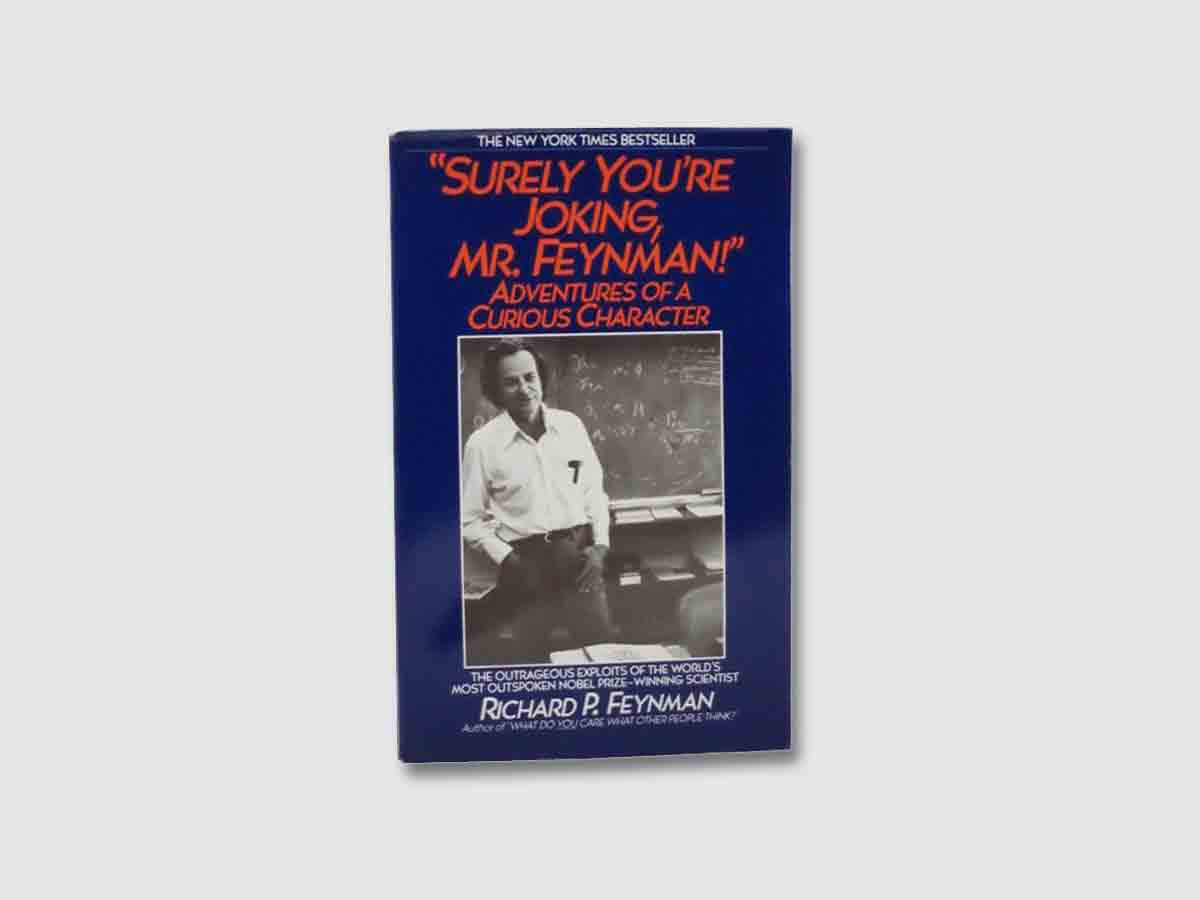What book to read? Which are the best authors? What do other people think of the book I like? What is the purpose of life? Why are we here? Is there more in life? These are all valid questions. Hooligan Hamlet is trying to answer at least some of these with our new column “Hooligan Book Club” mainly curated by digital marketing specialist / sportsgirl / fashion icon / socialmedia influencer Liisa Ennuste. This is a book CLUB, so you are very much welcome to join by writing us what do you think and feel about these books, have you read, are you planning to read etc.
Fourth Hooligan Book Club book review is about a book called “Surely you’re joking, Mr. Feynman!” by Richard Feynman.
Hooligan Book Club: Surely you’re joking, Mr. Feynman! – Richard Feynman
by Liisa Ennuste
This month I did a poll on my Instagram Stories in order to choose between two books: Peter Thiel’s “From Zero to One” and “Surely you’re joking, Mr. Feynman”. Truth be told, more people voted for Thiel’s book, but the quality of recommendations for the Feynman book seemed a lot higher (however, in this whole process I started feeling a strong bias against Thiel’s book and now I feel that I MUST read it, to debunk that bias.)
Feynman’s book was easy to read – a fun anecdote after an anecdote and only a few paragraphs of more technical physics and mathematics. The book is more about his philosophy of living, interesting discoveries from various fields (human psychology, lucid dreaming, art, music etc.) Feynman lived a very colourful life for a theoretical physicist and a Nobel Prize winner – he boasted a lot of interesting hobbies from dabbling in the art world, to playing bongos in Brazil and cracking safes that were protecting top secret papers on the atomic bomb (and yes, he also worked on The Manhattan project in Los Alamos where the first nuclear weapons were produced during WW II).
What I loved about Feynman was that he was extremely curious and never scared to ask simple questions to decipher long overcomplicated theories and statements. He detested scientists and philosophers, who deliberately made simple things sound more confusing.
Another Feynman’s character trait I admired, was that he never hesitated to get his hands dirty to make a real impact. At the time he was serving on the State Curriculum Commission to choose new schoolbooks for the state of California, he was the only one to actually read through all of the schoolbooks to give comprehensive feedback. During this process, however, he described his head as an erupting volcano of frustration, as a lot of the literature he read was utterly useless: definitions were inaccurate, examples were lousy… and it taught the kids NOTHING… He put up a war to make a difference, while a big chunk of that industry was bought or bribed by the book publishers.
However, I can also see why some people can find Feynman annoying. He had no interest whatsoever in formalities and on a lot of occasions he tried to fight this silly fight against them. For example, he refused to present receipts to have his travel expenses reimbursed.
His reasoning behind this: ”If you trust me to give high level lectures in this university, then you should trust that I paid an x amount for the plane tickets to get here – you know I had to fly here, how else would I get here?” And so on.
Feynman made some interesting, fun points in this book and to end this review and to give you a taste of his style, I’d like to share my favourites:
- “There was a Princess Somebody of Denmark sitting at a table with a number of people around her, and I saw an empty chair at their table and sat down. She turned to me and said, “Oh! You’re one of the Nobel-Prize-winners. In what field did you do your work?”
“In physics,” I said.
“Oh. Well, nobody knows anything about that, so I guess we can’t talk about it.”
“On the contrary,” I answered. “It’s because somebody knows something about it that we can’t talk about physics. It’s the things that nobody knows anything about that we can discuss. We can talk about the weather; we can talk about social problems; we can talk about psychology; we can talk about international finance–gold transfers we can’t talk about, because those are understood–so it’s the subject that nobody knows anything about that we can all talk about!” - “Innovation is a very difficult thing in the real world” (This is actually from the beginning of the book – a thought that really spiked my interest in how people often do not welcome innovation in small units vs how humankind thrives on innovation.
To explain quickly: Feynman was 17 years old when he was working in a hotel run by his aunt. He constantly tried to innovate every day processes to make them more efficient and every one of his attempts was either laughed at or condemned. That was the first time he realized how difficult it is to innovate in the real world. - “– and pompous fools drive me up the wall. Ordinary fools are alright; you can talk to them and try to help them out. But pompous fools – guys who are fools and covering it all over and impressing people as to how wonderful they are with all this hocus pocus – THAT, I CANNOT STAND! An ordinary fool isn’t a faker; an honest fool is all right. But a dishonest fool is terrible!”
Definitely worth a read.
Doesn’t make it to my TOP 5 this year, but it’s wise, funny and makes you feel that you need to take up a new hobby ASAP.
